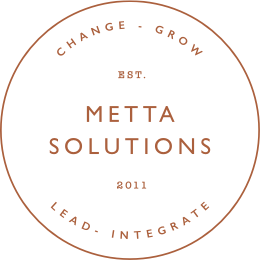Psychological assessments have many different uses. Some of them are widely recognized and in common use, while others may be less familiar to you. If you haven’t encountered any of these before, it’s likely only a matter of time. You’ll be better positioned to understand and learn from them when you understand the key types of assessments commonly used in leadership development, how to utilize them and who should administer them.
After reading this post, be sure to get your copy of my tip sheet with questions you’ll want to ask before taking a psychological assessment.
The assessments I discuss here are not those used in formal psychologic or psychiatric diagnosis or treatment. It’s also important to know that this article is not a formal review of the psychometric characteristics of workplace psychological instruments, but if you are interested in this kind of information, this article provides a great overview.
What are the common types of assessment tools?
Essentially, there are a few key types of assessments commonly used in leadership development. They include:
Personality inventories. These instruments assess personality preferences (like the Myers-Briggs Type Indicator assessment) or traits (the “big five” assessments, such as the Workplace Big Five Profile, based on five core personality traits thought to be common in humans). These assessments help you learn about your own preferences or styles of behavior and those of others. They can help you build skills for interacting with people who have preferences or traits that differ from your own, and to recognize patterns in your own behavior that you may want to change.
Behavior style assessments. These include the FIRO or DiSC assessments, and they help you understand your style of interacting with others. Some of these assessments are developed specifically to address your style at work, and others are more general. They can help you recognize behavioral patterns in yourself and others that can lead to more effective interpersonal interactions.
Skills and interest inventories. Tools such as emotional intelligence assessments or leadership skills inventories can help you identify where you have skills, interests or aptitudes that relate to particular types of work. They can be particularly useful if you are thinking of a career transition or making an initial career choice.
Values inventories. These tools can help you understand and see how you prioritize the things that matter most to you. This can be helpful if you are trying to make decisions or lead teams in an environment where there are multiple competing interests. In such situations, having a clear understanding of your own value system and how it drives your decision making may be the only bedrock on which you can rest as you make decisions.
Talent acquisition and talent development instruments. These tools are typically designed to screen for skills and behaviors that are valued by a hiring organization. Common personality instruments and others described above are typically not designed for this use, and in some cases it can be highly inappropriate for them to be used in this fashion. If you are thinking of using such instruments in hiring, development and advancement functions within your company, it is important to consult with someone who is well-versed in the human resources aspect of those functions, and to select instruments that are designed to be ethically used in this manner.
Who should administer assessments?
In general, you will find that assessments may be recommended to you or offered by a human resources professional, a psychologist or an executive or leadership coach. Each of these professions has ethical guidelines around who should be administering and interpreting psychological assessment results. In general, you should expect that anyone who is offering you a psychological assessment meets the following criteria:
- They have been formally trained (and credentialed or licensed if possible) to use specific instruments.
- They should have experience translating the results with individuals like you in situations that are similar to yours.
- They should be prepared to help you build (and perhaps implement) a plan for your own professional growth and development based on your assessment results.
There are rare situations where you might undergo an assessment with someone who does not meet one or more of these criteria, but these should be your typical minimum expectations.
How should assessment results be used?
Not all assessments are designed to serve the same purpose. Some are designed to help you understand yourself and how you relate to those around you. Some are designed to provide a baseline score for comparison after a period of learning. And some are explicitly designed to be used in employment screening, hiring, advancement or evaluation. These types of assessments should not be used interchangeably.
How do I decide if an assessment will be useful to me?
The most important thing you can do as you explore assessments is to talk at some length with the person who is recommending them to you. What is the goal of the assessment? How will it be used? Is this person trained and experienced in this work? Having a conversation that helps you set your expectations and understand what to expect from the experience is critical to your decision.
If you’d like to know more, download my free one-page tip sheet on questions you should ask before taking an assessment. You can grab it here.
Your experience
And before you go, I hope you’ll consider leaving a comment below about your key takeaway from this post or something about your own experience with assessments. Help us build this community by joining the conversation! I’ll watch for responses and weigh in quickly if you take the time to comment here or on social.





